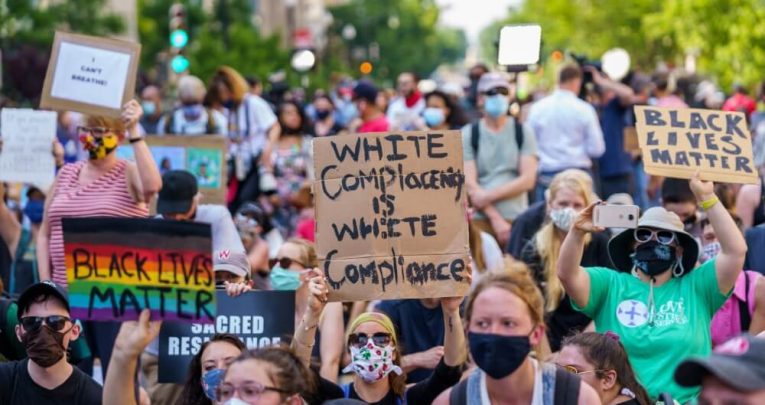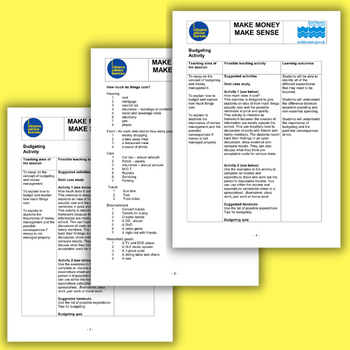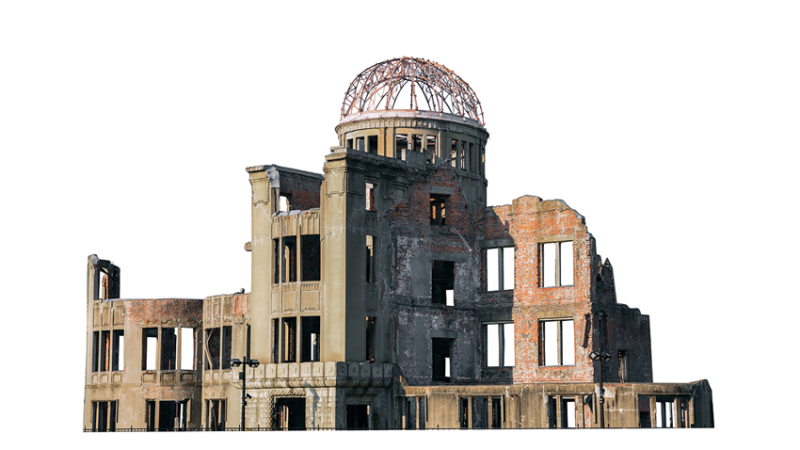Protesting political issues – Does ‘silence’ always mean ‘violence’?

Jacob Reynolds takes issue with the position adopted by some protest movements that if you’re not saying anything, you’re essentially helping the oppressors…

Amid the protests surrounding the Black Lives Matter movement last year, there’s one element I found especially interesting – the insistence that ‘silence is violence’.
I should state from the outset that I don’t bring this up out of any antagonism I have with the BLM movement. My reason for examining it here is that I believe this phrase neatly sums up a political philosophy found across many wildly different movements, from Extinction Rebellion to anti-lockdown protestors.
It’s the idea that when it comes to big political issues, there is only one way to think and one right answer.
It follows that the quiet work of reflection is at best unnecessary, and at worst, positively dangerous. It’s an attitude that perhaps chimes with the contemporary classroom where active, even noisy participation is in vogue. Silence might be enforced in the exam hall, but teachers who enforce silent reading in class are most likely seen by their peers as quaint relics from a bygone era.
What you don’t say
Another increasingly common refrain in the world of education is that words can be as violent as actions, be it in the context of hurtful bullying or racist speech.
However, the newer ‘silence is violence’ dogma takes things a step further, in that it’s not just what you say, but what you don’t say that can now be seen as violent.
It’s easy to see where these arguments come from. Who wouldn’t be frustrated by company executives and politicians jumping on worthy social causes, only to disappear when more radical change is proposed? What’s more, it’s surely right that those complicit in racism need to do the work of changing.
In this context, at least, ‘silence is violence’, is supposed to remind those in power of their privileged position, and insist that no-one has the right to ignore racial injustice.
Single-minded insistence
All that can be true, yet at the same time there’s an ugly, perhaps even dangerous undercurrent to ‘silence is violence’. It’s there in the viral videos showing protestors entering restaurants, chanting ‘Black Lives Matter’ and insisting that the patrons of these establishments join in with the chants, raise a fist or take the knee.
What’s implied is pretty obvious – only a racist wouldn’t join in. Yet there are many good reasons for not instantly consenting to protestors’ demands, even if you broadly agree with their aims. You might simply want to enjoy a peaceful meal. You might be unsure as to on whose behalf the protestors are speaking.
A single-minded insistence on there being ‘only one right answer’ is by no means limited to the Black Lives Matter cause. Political strategies of this sort are designed to stifle independent thought. Silence, by comparison, is intimately connected with independent thought – which we can see by exploring the work of political theorist, Hannah Arendt.
A soundless dialogue
In a lecture delivered shortly before her death, Arendt suggested that the key feature of independent thought was the ability to ‘stop, and think’. She noted how Socrates, an exemplar of independent thought almost to the point of stubbornness, is reported to have always been stopping, suddenly immersed in thought. To think, you have to withdraw from your immediate surroundings, surround yourself in silence, and silence yourself.
As Arendt memorably puts it, thinking is the ‘soundless dialogue between me and myself.’ Silence may be out of fashion, but teachers of all stripes will surely recognise that moment when a comment suddenly turns a pupil’s world upside down, prompting a visible retreat into this ‘soundless dialogue’ with themselves to work out what it all means.
Arendt went on to observe how Socrates was often fond of concluding conversations with his fellow Athenians by remarking that there was ‘that other fellow’ waiting for him at home. That ‘other fellow’ was Socrates himself – the voice we all carry in our heads, with whom we speak when we’re alone, thinking hard or deciding what to do.
The fact that we’re capable of having such conversations with ourselves, Arendt argued, demonstrates that human beings paradoxically contain two voices in one person – ‘me’ and ‘myself’.
However, this second voice in our heads doesn’t tend to say much when we’re busy. When were you last immersed in a deep conversation, solving a complicated puzzle or playing sport? Chances are, that second voice will have absented itself to let you get on with the task at hand.
Thinking dangerously
The regular disappearance of this second voice is useful, because otherwise we’d never get anything done. Concerns of this sort no doubt played a part in the Athenians’ decision to condemn Socrates who filled them all with indecision – to death.
In our own time, committed political activists are liable to get frustrated by indecisive people who never seem to make up their minds. Yet it’s for precisely this reason – that ‘Hang on a minute…’ we hear in our heads – that silent reflection is so important. Doubt forces us to think again, justify ourselves, examine our prejudices, to – as modern parlance would have it – check our privilege.
Arendt insisted that such doubt was a natural consequence of thinking, stating ‘There are no dangerous thoughts; thinking itself is dangerous.’ Thinking causes us to constantly question everything and makes us feel doubtful. It can be a taxing, even exhausting process, and one that typically requires silence. Silence therefore isn’t ‘violence’, but rather an essential component for thought and reflection.
It’s for this reason that slogans, catchphrases and especially chants are inimical to independent thought. ‘Black lives matter,’ ‘Build the wall’, ‘Lock them up’ – all occupy that part of your mind that would otherwise be engaged in a dialogue between you and yourself.
As Arendt astutely puts it, “Clichés, stock phrases, adherence to conventional, standardized codes of expression and conduct have the socially recognized function of protecting us against reality.”
The same family
It’s easier to make decisions by falling back on clichés than by consulting our own thoughts. If you want to inoculate yourself against reality – and from learning, changing, and improving – then avoid thinking.
But if you don’t, then bear in mind that thinking needs silence and privacy. It requires space in which to test out the results of your thinking, and others willing to productively criticise your position. The numerous teachers and educationalists who argue that schools should promote independent, critical thinking would do well to acknowledge the crucial role of silence.
At some point, thought inevitably has to stop and action has to begin. But if we’re going to act, who can predict what we’ll do if we haven’t thought about it first? Silence and discussion, thought and action – these aren’t polar opposites, but rather members of the same family. They need each other, even if they sometimes get in each other’s way.
Silence then, is very far from being violence. As history has sadly taught us, violence swiftly follows when people insist that we silence ourselves and stop thinking.
Jacob Reynolds is partnerships manager for The Academy of Ideas; this article is an edited version of a lecture given in the ‘Ideas on Freedom’ series run by the Academy of Ideas and the University of Buckingham Free Speech Society
The Academy of Ideas Education Forum gathers monthly to discuss trends in educational policy, theory and practice; Find out more here










